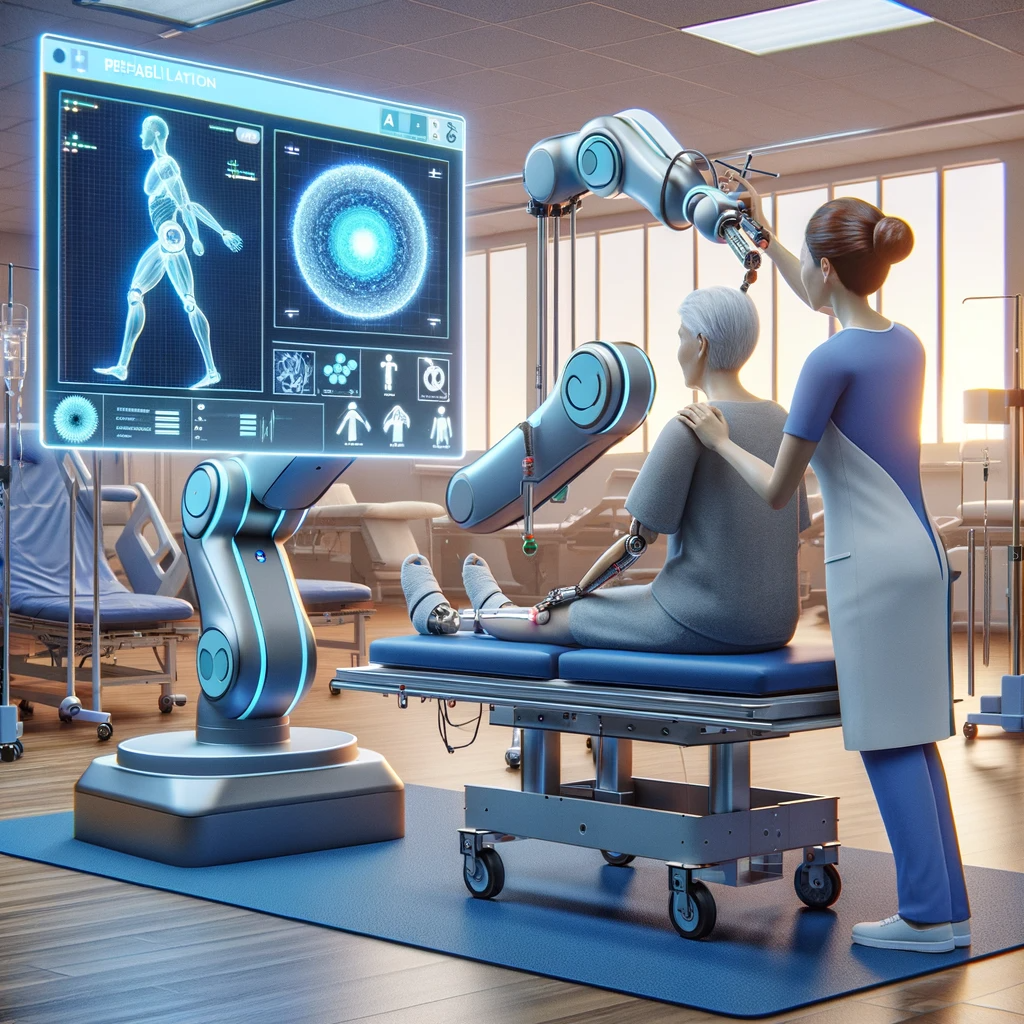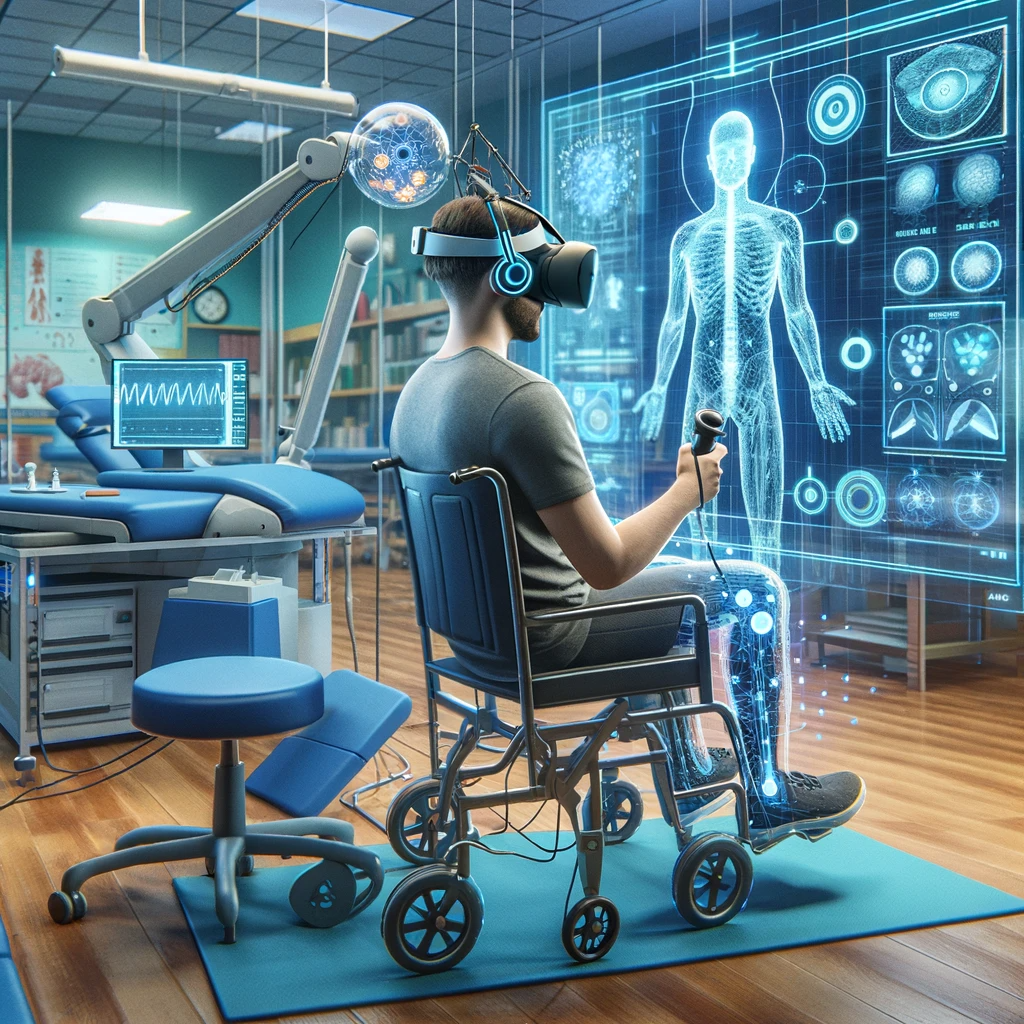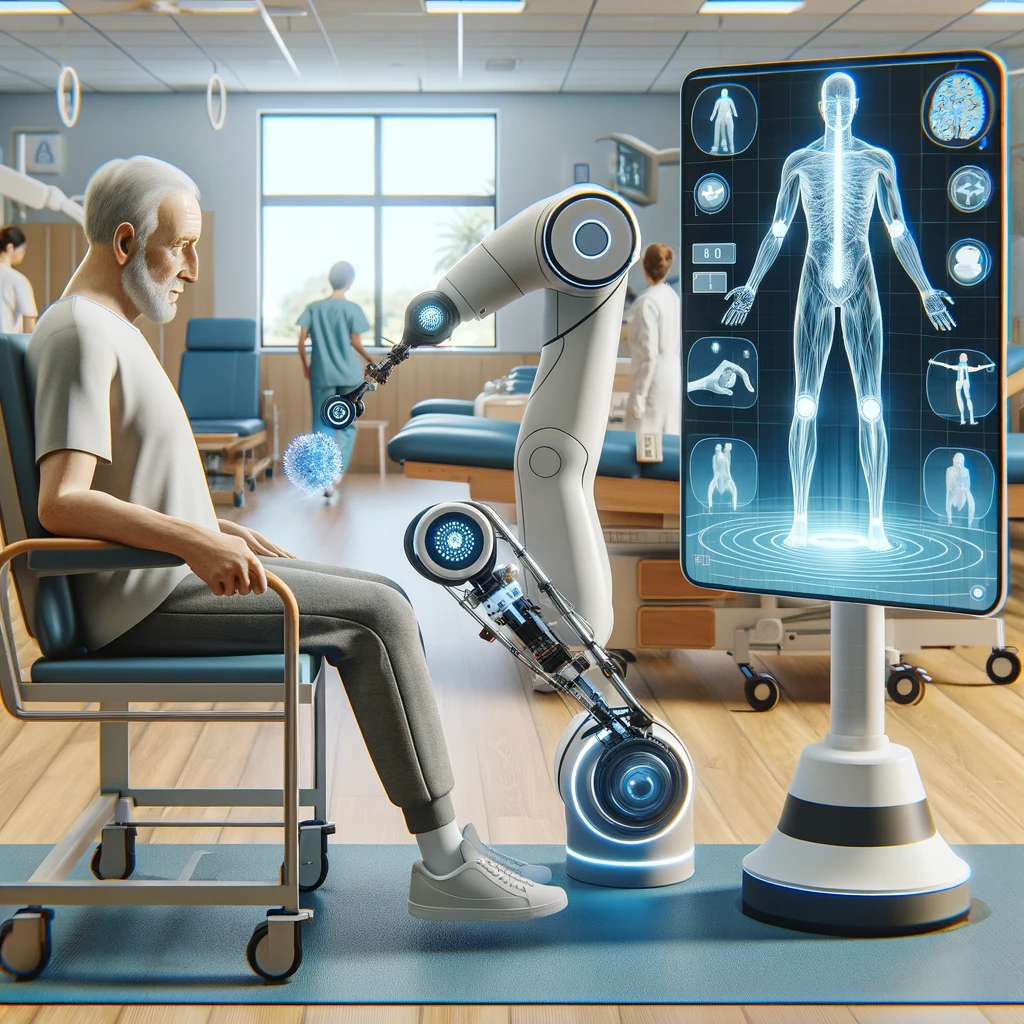Stroke is a debilitating medical condition that affects millions of people worldwide, often leaving individuals with long-lasting physical and cognitive challenges. The journey to recovery after a stroke can be arduous, requiring personalized therapy plans and diligent progress tracking. In recent years, the integration of Artificial Intelligence (AI) into healthcare has offered new hope for stroke patients and rehabilitation specialists.
This article delves into the promising intersection of AI and stroke rehabilitation. It aims to explore the role of AI in providing personalized therapy plans and monitoring the progress of stroke patients during their recovery journey. While traditional rehabilitation methods have been effective, AI introduces a new dimension of precision and adaptability, potentially revolutionizing the way we approach stroke rehabilitation.
Throughout the following sections, we will examine the fundamentals of stroke and the challenges associated with rehabilitation. We will then embark on a journey into the realm of AI, highlighting its transformative potential in healthcare. From AI-powered personalized therapy plans to real-time progress tracking, we will uncover the tangible benefits that AI brings to stroke rehabilitation.
Additionally, this article will address the ethical considerations and potential challenges that arise when integrating AI into healthcare. The voices of stroke patients, caregivers, and healthcare providers will provide valuable insights into the real-world impact of AI-assisted rehabilitation.
As we navigate through the advancements and innovations in AI for stroke rehabilitation, we will also glimpse into the future, envisioning a healthcare landscape where AI plays a pivotal role in helping stroke patients regain their independence and quality of life. The following sections will shed light on the evolving landscape of stroke rehabilitation, driven by the transformative power of AI.
Understanding Stroke and Rehabilitation
Stroke, often referred to as a “brain attack,” is a medical emergency that occurs when there is a disruption in the blood supply to the brain. It can result from a blockage in the blood vessels (ischemic stroke) or bleeding within the brain (hemorrhagic stroke). Stroke is a leading cause of disability worldwide, affecting an individual’s ability to move, speak, and perform daily tasks.
The process of stroke recovery involves rehabilitation, a comprehensive and individualized approach aimed at restoring lost functions and improving overall quality of life. Traditional rehabilitation methods include physical therapy, occupational therapy, speech therapy, and cognitive therapy. These therapies are essential but can be resource-intensive and time-consuming.
The Role of AI in Healthcare
Artificial Intelligence (AI) is a rapidly evolving field with transformative potential in various industries, including healthcare. AI encompasses technologies like machine learning, natural language processing, and computer vision. In healthcare, AI has the ability to analyze vast amounts of medical data, assist in diagnosis, and personalize treatment plans.
AI’s capacity to process and make sense of complex healthcare data, including medical images, patient records, and genetic information, has made it a valuable tool in improving patient care. Its potential to assist in stroke rehabilitation lies in its ability to analyze patient data and provide personalized therapy plans.

AI-Powered Personalized Therapy Plans
One of the key advantages of AI in stroke rehabilitation is its capacity to assess a stroke patient’s condition comprehensively. AI can analyze various factors, including the type of stroke, its severity, the patient’s age, pre-existing conditions, and rehabilitation goals. Based on this analysis, AI can generate personalized therapy plans tailored to the specific needs of the patient.
These therapy plans can include a combination of physical exercises, cognitive training, speech therapy exercises, and recommendations for assistive devices. The ability to create highly personalized plans enhances the effectiveness of rehabilitation and accelerates the recovery process.
Tracking Progress with AI
Another crucial aspect of stroke rehabilitation is progress tracking. Traditionally, tracking progress involves periodic assessments by healthcare professionals, which may not capture subtle changes in a patient’s condition. AI introduces real-time progress tracking through the use of wearable devices, sensors, and data analytics.
These devices can monitor a patient’s movements, heart rate, and even cognitive function. The data collected is processed by AI algorithms, allowing healthcare providers to track a patient’s progress more accurately. Real-time tracking enables immediate adjustments to therapy plans, ensuring that patients receive the most effective interventions.
Challenges and Ethical Considerations
While AI holds immense promise in stroke rehabilitation, it also presents challenges and ethical considerations. One challenge is the need for robust data privacy and security measures to protect patient information. Ethical considerations include issues related to consent, data ownership, and the potential for AI to replace human caregivers.
Balancing the benefits of AI with these challenges is essential for responsible integration into healthcare. Striking the right balance ensures that AI enhances patient care while respecting ethical principles and safeguarding patient rights.
Success Stories and Case Studies
To illustrate the real-world impact of AI in stroke rehabilitation, this section will feature success stories and case studies. These narratives will highlight healthcare institutions or rehabilitation centers that have embraced AI-assisted therapy plans and the positive outcomes experienced by stroke patients.
By sharing these stories, readers will gain insights into how AI is making a difference in the lives of stroke survivors and the professionals who support their recovery.
The Future of AI in Stroke Rehabilitation
The future of AI in stroke rehabilitation is bright. Ongoing research and developments in AI algorithms, wearable technology, and telehealth are poised to further enhance the field. This section will explore potential advancements, including the integration of virtual reality and AI-driven tele-rehabilitation.
The collaboration between healthcare professionals and AI developers will play a pivotal role in shaping the future landscape of stroke rehabilitation. Additionally, it will discuss how AI can contribute to the prevention of strokes through early detection and risk assessment.
Patient and Caregiver Perspectives
Understanding the perspectives of stroke patients, caregivers, and healthcare providers is crucial. This section will include interviews and testimonials from individuals who have experienced AI-assisted stroke rehabilitation firsthand. Their insights will provide valuable perspectives on the effectiveness and human impact of AI in healthcare.

Conclusion
In conclusion, AI is poised to revolutionize stroke rehabilitation by providing personalized therapy plans and real-time progress tracking. While challenges and ethical considerations must be addressed, the potential benefits are significant. The integration of AI into stroke rehabilitation offers hope for a future where patients recover more effectively, regain their independence, and enjoy an improved quality of life.
As AI continues to evolve, its role in healthcare, including stroke rehabilitation, will become increasingly prominent. The transformative power of AI, combined with human expertise and compassion, holds the promise of brighter outcomes for stroke survivors worldwide. This article invites readers to explore the evolving landscape of stroke rehabilitation, where technology and human care converge to make a difference in the lives of patients on the road to recovery.
